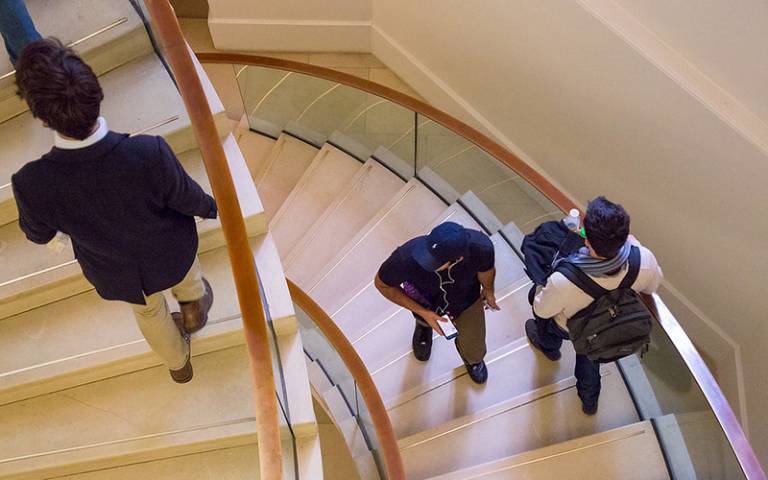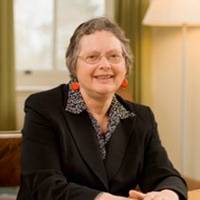VIRTUAL EVENT: Strategy in higher education: global and national perspectives
24 March 2021, 10:00 am–2:00 pm

This symposium presents research on the link between university strategy and the global higher education sector.
This event is free.
Event Information
Open to
- All
Availability
- Yes
Cost
- Free
Organiser
-
Centre for Higher Education Studies (CHES)
The increasing competitive pressures that have accompanied globalisation in higher education have pushed universities across the world to position themselves strategically, selecting the markets they operate in and mobilising the necessary resources, both material and symbolic, to boost their international profile.
This symposium aims to understand the diverse challenges both institutions and the sector are facing. It does so through research addressing organisational capabilities, technological innovation, organisational reputation and rankings.
The symposium contributes to ongoing debates on higher education by providing a systemic perspective on the strategic role universities play within the broader society.
This event is convened by Dr Tatiana Fumasoli.
Programme
Morning session 10am–11:30pm
- 10–10.05am: Welcome message
Speaker: Professor David Price, Vice Provost (Research), UCL
- 10:05–10:30am: The strategy-organisation nexus
Speaker: Dr Tatiana Fumasoli, Associate Professor and Director of the Centre for Higher Education Studies (CHES), UCL Institute of Education
The global higher education sector focuses on the race for talent of staff and students, implying strategic positioning is best achieved by attracting resources at competitors’ expenses. In this presentation, Tatiana will argue that excellent research and teaching are built over the years and cannot be simply imported into institutions.
A systemic perspective is presented, contending that universities need to cooperate among each other in order to impact positively on their national higher education system.
- 10:30–11:00am: Challenges for the strategic positioning of universities’ teaching in a marketised higher education system: the case of England
Speaker: Professor Rosemary Deem, Emerita Professor of Higher Education Management, Royal Holloway
With the advent of ultra high fees for undergraduate degrees and with the aid of devices such as the National Student Survey (started 2005) and the Teaching Excellence Framework (TEF) from 2017, institutions have sought to differentiate themselves from each other. An example of this is in relation to the ‘student experience’ which is often defined in terms of material artefacts such as cafes or new libraries or open spaces with sofas.
However, in practice there has also been a firm focus almost solely on undergraduate students and neglect of taught masters and doctoral education.
A new strategic positioning for English universities could instead offer a participative form of higher education for all students and an inclusive curriculum which does not ignore Black, Asian or Ethnic minority students’ own cultures.
- 11:00–11.30am: Datafication, documentation and the ‘algocracy’: learning analytics and higher education strategy
Speaker: Professor Lesley Gourlay, Department of Communication, Culture and Media, UCL Institute of Education
In this presentation, Lesley will suggest that in the marketised model of higher education, digital technology has been co-opted as the primary site of managerial surveillance, in which embodied, ephemeral and copresent epistemic practices at the heart of educational processes such as teaching, reading, independent study, are subjected to processes which render them not only as data, but also as documents.
The reverberations of these practices for higher education strategy, particularly viewed from the perspective of posthuman and new materialist theories of agency, will be considered.
Break 11.30am–12.00pm
Afternoon session, 12–2pm
- 12.00–12.30pm: Organisational reputation in higher education
Speaker: Dr Jelena Brankovic, Postdoctoral Researcher, Faculty of Sociology, Bielefeld University
That a university is 'highly reputed' typically means it is overall a good one. Usually, and often also preferably, a rank is offered as evidence, whereby rankings are offered as mere instruments which help us 'know' reputation—itself seen as a social reality independent of rankings.
Reputation thus becomes a target of management, strategy, and resource allocation. Given that good reputation is something all universities desire, they are imagined as always competing for it, while rankings are seen as playing a role in 'intensifying' this competition.
In this talk Jelena will point out some limitations produced by this imaginary.
Four elements built into the conceptualisations of reputation rooted in this imaginary will be discussed:
- objectivity
- uniqueness
- scarcity
- and temporality.
She will argue that the absence of critical takes, and the normative underpinnings thereof, carries implications for both policy and practice.
- 12.30–1.00pm: Comprehensive or specialist: analysis of global university strategies
Speaker: Elizabeth Shepherd, Managing Director, Consultancy services, Times Higher Education (THE)
This presentation will draw on an extensive database of university indicators and will focus on how higher education institutions position themselves as comprehensive or specialists, thereby influencing their missions as well as their places in global rankings.
It is argued that world-leading universities offer a comprehensive portfolio, which include, in particular, arts and humanities. At the same time runner-up universities specialise in engineering and related disciplines focused on socio-economic impact.
- 1:00–1:30pm: Rankings and the reshaping of the geopolitical landscape of higher education and research
Speaker: Professor Ellen Hazelkorn, Joint Managing Partner, BH Associates
Global rankings are a logical component of internationalised higher education. Benchmarking, assessment and comparison – using a preponderance of quantitative indicators in a variety of 'governance indices' – have been a growing part of public policy across many sectors.
But global rankings changed the discourse and elevated concerns around quality and performance by formally highlighting the internationalisation of higher education, its products (talent and knowledge) and services.
In doing so, they have forged and shaped the battle for world-class excellence between institutions but especially between nations. This presentation looks at the role rankings play in the evolving global architecture of higher education and research.
- 1:30–2:00pm: Panel discussion
Speakers: Dr Jelena Brankovic, Professor Rosemary Deem, Dr Tatiana Fumasoli, Professor Lesley Gourlay, Professor Ellen Hazelkorn and Elizabeth Shepherd
Chair: Victoria Showunmi
CHES research events
CHES research events provide a forum for academic debate, policy analysis and practice insight in higher education, supporting the exchange of theories, methods and data across social sciences.
Links
About the Speakers
Professor David Price
Vice Provost (Research) at UCL

At UCL, he was appointed Professor at the age of 33, and later served as Head of the Department Earth Sciences, and as Dean of Mathematical and Physical Sciences, before being appointed to his current position of Vice Provost in 2007.
More about Professor David PriceDr Tatiana Fumasoli
Associate Professor in Higher Education Studies and Director of CHES at the UCL Institute of Education

Her research interests lie at the intersection of management studies, organisation theory and sociology of professions and expertise.
More about Dr Tatiana FumasoliProfessor Rosemary Deem
Emerita Professor of HE Management and Doctoral School Senior Research Fellow at School of Business and Management, Royal Holloway

More about Professor Rosemary Deem
Professor Lesley Gourlay
Professor of Education at Department of Culture, Communication and Media, UCL Institute of Education

Dr Jelena Brankovic
Postdoctoral Researcher at Faculty of Sociology, Bielefeld University

Her interests extend to the practice of theorizing, academic writing, and peer learning in academia. Jelena also serves on the editorial board of Higher Education (Books Editor).
More about Dr Jelena BrankovicElisabeth Shepherd
Managing Director at Consultancy Services, Times Higher Education (THE)

Professor Ellen Hazelkorn
Professor Emerita at Technological University Dublin

 Close
Close

